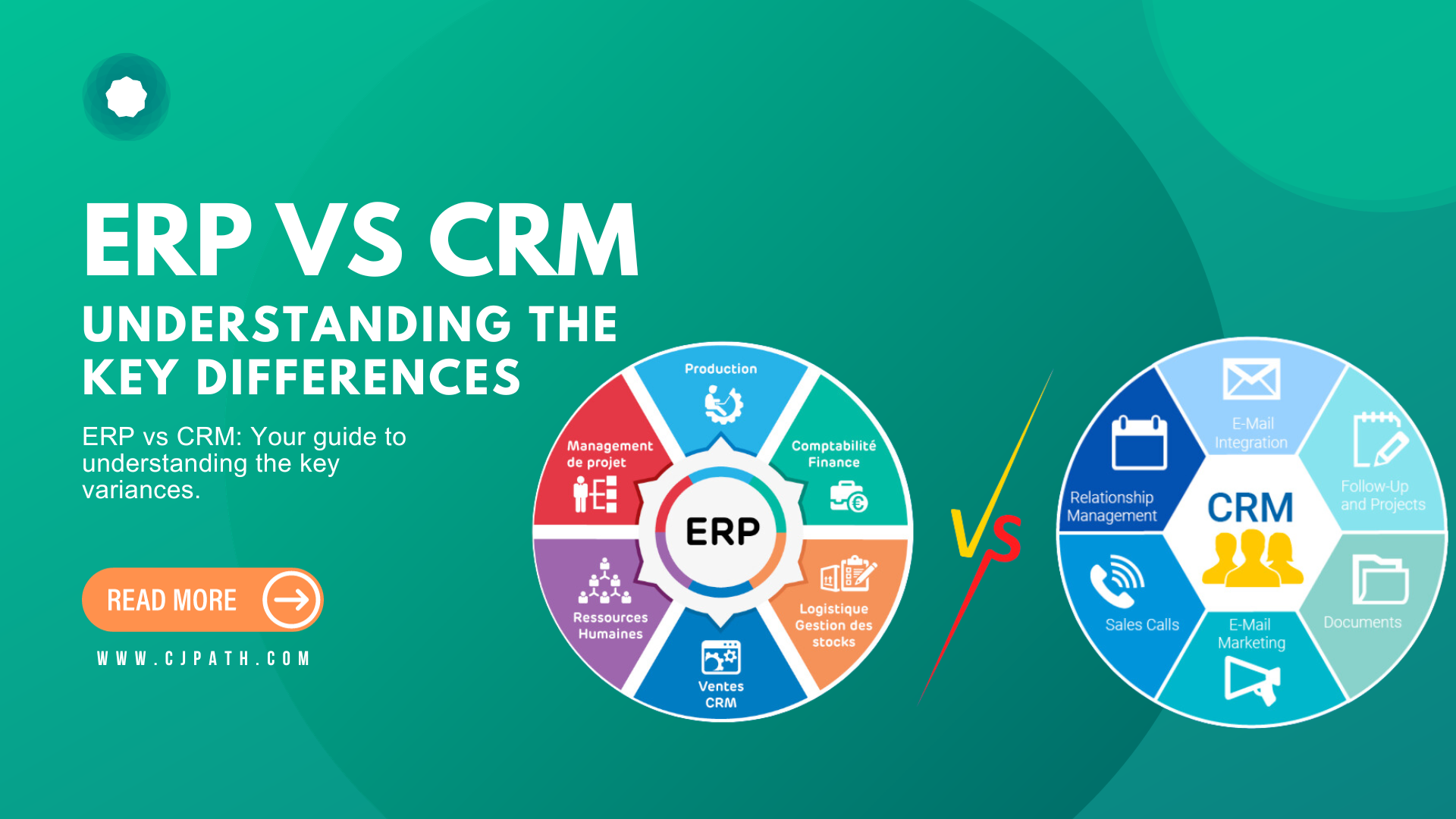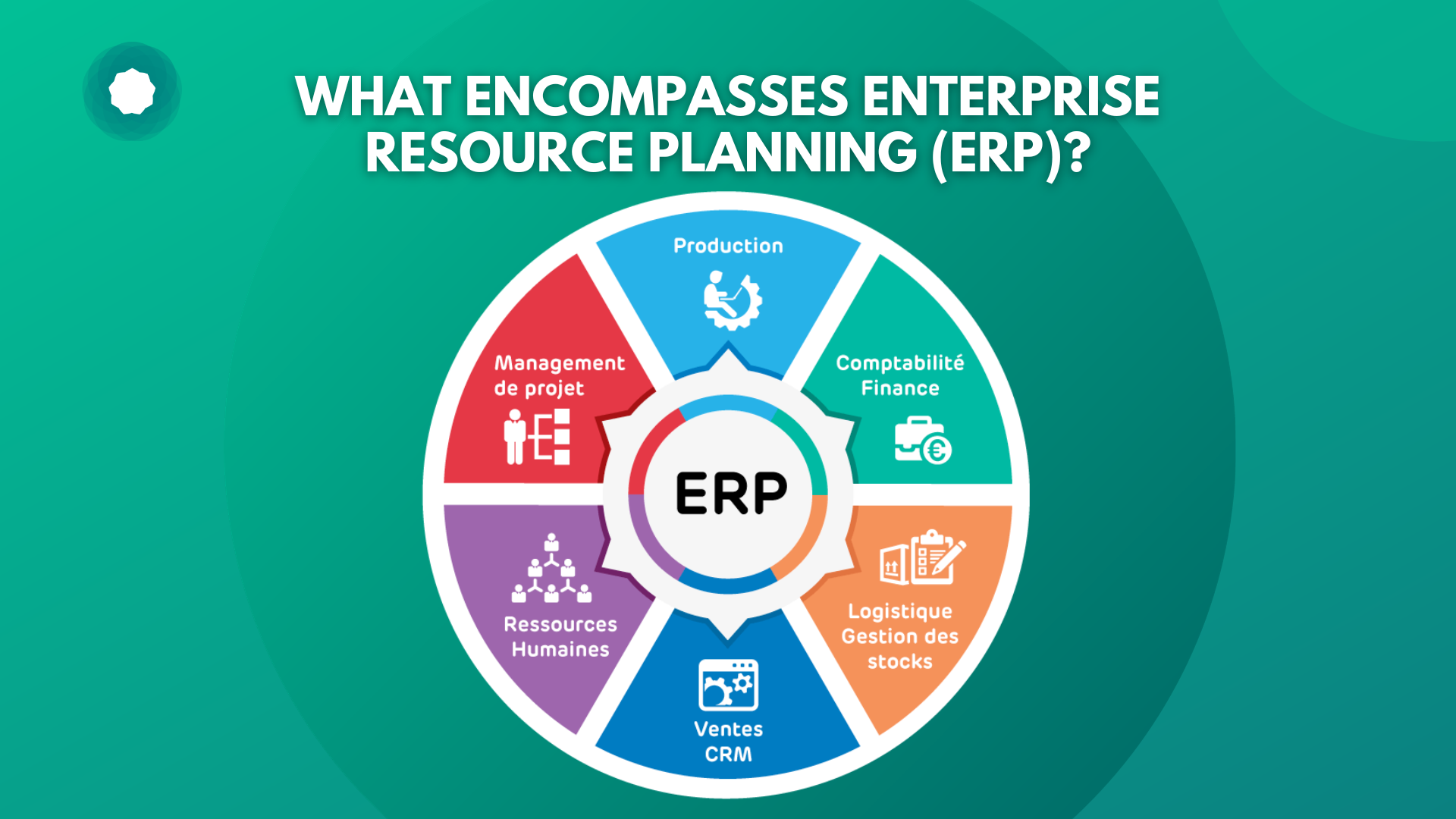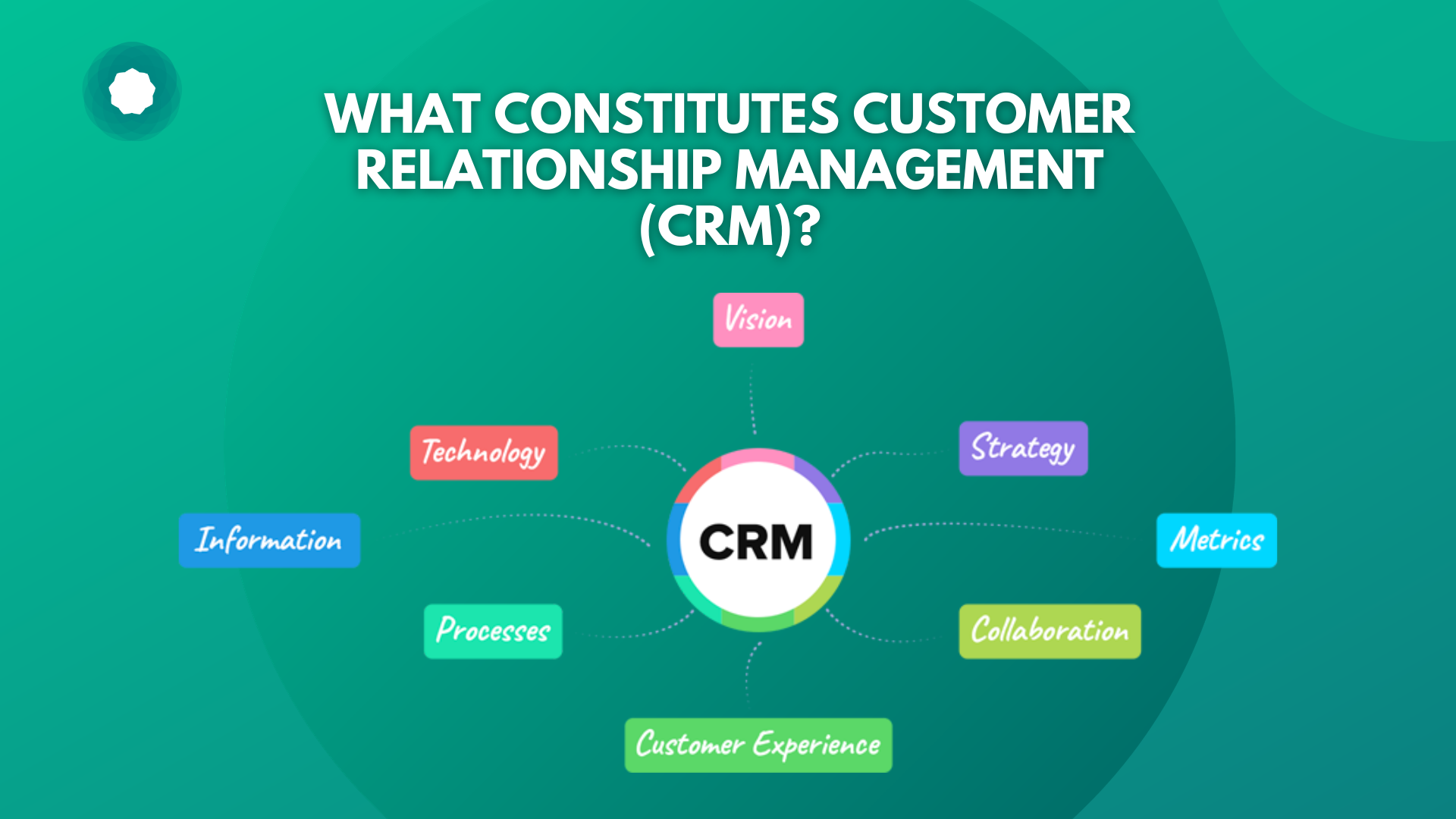
When it comes to managing your business, there are a lot of acronyms thrown around - ERP, CRM, BPM, just to name a few.
But what do these terms actually mean, and how do they differ from each other?
In this article, we’ll focus on two of the most commonly used terms in business management - ERP vs CRM.
We’ll explore their key differences and help you understand which one is best suited for your business needs.
CRM vs ERP: What encompasses Enterprise Resource Planning (ERP)?

Definition and Functionality
ERP stands for Enterprise Resource Planning.
This software system combines everything a business needs, like money, employees, supplies, and work.
An ERP system helps make business processes smoother, improve efficiency, and provide real-time data for decisions.
An ERP system typically includes modules for different departments, such as accounting, inventory management, and customer relationship management.
These modules are integrated, allowing for seamless communication and data sharing between departments.
Key ERP Benefits
Some of the key features of an ERP system include:
- Centralized database: All data is stored in a single database, allowing for easy access and real-time updates.
- Automation: ERP systems automate various business processes, reducing the need for manual data entry and increasing efficiency.
- Personalization: ERP systems can be customized to fit the specific needs of a business, allowing for a tailored solution.
- Reporting and analytics: With all data in one place, ERP systems provide robust reporting and analytics capabilities, allowing for data-driven decision-making.
ERP vs CRM: What constitutes Customer Relationship Management (CRM)?

Definition and Functionality
CRM stands for Customer Relationship Management.
It is a software system that focuses on managing interactions with customers and potential customers.
The goal of a CRM system is to improve customer relationships, increase sales, and drive business growth.
A CRM system typically includes modules for sales, marketing, and customer service.
These modules are designed to track and manage customer interactions, from initial contact to post-sale support.
Key CRM Features
Some of the key features of a CRM system include:
- Contact management: CRM systems store all customer information in one place, making it easy to track interactions and manage relationships.
- Sales tracking: CRM systems track sales activities, such as leads, opportunities, and deals, providing insights into the sales pipeline.
- Marketing automation: CRM systems can automate marketing processes, such as email campaigns and lead nurturing, to improve efficiency and effectiveness.
- Customer service management: CRM systems allow for efficient management of customer service requests and provide a centralized platform for customer support.
Key Differences: ERP vs CRM

Now that we have a basic understanding of ERP and CRM, let’s dive into their key differences.
Focus
The main difference between ERP and CRM is their focus.
ERP systems focus on managing internal business processes, while CRM systems focus on managing customer interactions.
ERP systems are designed to improve efficiency and streamline operations within a business.
They provide a centralized platform for managing various departments and processes, such as accounting, inventory management, and supply chain.
On the other hand, CRM systems are designed to improve customer relationships and drive sales.
They provide a centralized platform for managing customer interactions, such as leads, opportunities, and customer service requests.
Data Management
Another key difference between ERP and CRM is their approach to data management.
ERP systems focus on managing all data within a business, while CRM systems focus on managing customer data.
ERP systems store all data in a centralized database, allowing for easy access and real-time updates.
This includes data from various departments, such as finance, human resources, and operations.
CRM systems, on the other hand, store customer data in a centralized database.
This includes information such as contact details, purchase history, and customer service interactions.
Integration
ERP and CRM systems also differ in terms of integration.
ERP systems are made to connect all parts of a business, while CRM systems are made to connect with other systems.
ERP systems typically include modules for different departments, such as accounting, inventory management, and customer relationship management.
These modules are integrated, allowing for seamless communication and data sharing between departments.
CRM systems can work together with other tools like marketing automation and e-commerce platforms.
This allows for a more comprehensive view of customer interactions and data.
Business Size
ERP and CRM systems are also suited for different business sizes.
ERP systems are typically used by larger businesses with complex operations and multiple departments.
They require a significant investment in terms of time and resources to implement and maintain.
CRM systems, on the other hand, are suitable for businesses of all sizes.
They can be used by small businesses with a few employees or large enterprises with thousands of employees.
They are relatively easy to implement and require less maintenance compared to ERP systems.
ERP vs CRM: Which Option Aligns Most Suitably Matching Your Business Needs?

Now that we know more about the main differences between ERP and CRM, let's find out which one is suitable for your business.
Considerations for ERP
An ERP system may be the right choice for your business if:
- You have complex business processes that require automation and streamlining.
- You have multiple departments that need to communicate and share data.
- You have a large amount of data that needs to be managed and analyzed.
- You have the resources and budget to implement and maintain an ERP system.
Considerations for CRM
A CRM system may be the right choice for your business if:
- You want to improve customer relationships and drive sales.
- You want to track and manage customer interactions and data.
- You want to automate marketing processes and improve efficiency.
- You have a smaller business with fewer departments and less complex operations.
In conclusion, ERP and CRM are two essential systems for managing a business, but they serve different purposes.
ERP systems focus on managing internal business processes, while CRM systems focus on managing customer interactions.
When deciding which one is right for your business, consider your business size, complexity, and goals.
Both ERP and CRM systems have benefits and improve business operations.
It's important to choose the system that fits your needs.

